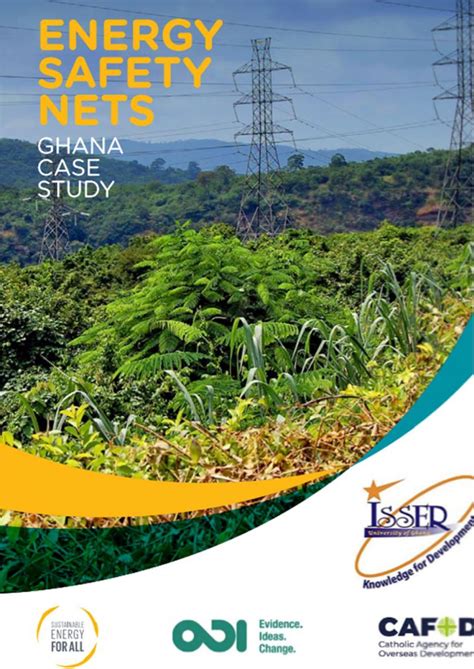In the bustling streets of Accra, Ghana, a call to action echoes through the corridors of power. The Africa Sustainable Energy Centre (ASEC) has raised its voice, urging the Ghanaian government to set its sights on sustainable energy solutions as a catalyst for economic growth and long-term prosperity. This plea comes at a critical juncture when Ghana’s energy sector is grappling with a myriad of challenges that threaten national stability and economic progress.
Challenges in Ghana’s Energy Sector
The landscape of Ghana’s energy sector is fraught with complexities ranging from mounting debts to gas shortages and operational inefficiencies. Despite efforts like the Cash Waterfall Mechanism (CWM), mismanagement has exacerbated financial burdens, strained relationships with Independent Power Producers (IPPs), and led to persistent power rationing. ASEC underscores the urgency of addressing these issues not just for immediate relief but as essential steps towards sustainable development.
Expert Insight: According to industry analysts, Ghana’s energy woes are symptomatic of broader governance and operational shortcomings that require strategic interventions for lasting impact.
The Roadmap to Resilient Energy Infrastructure
To navigate these turbulent waters and steer Ghana towards a brighter energy future, ASEC lays out a roadmap brimming with actionable recommendations:
Addressing Gas Supply Challenges: Central to this vision is the completion of critical infrastructure such as Train Two of the Atuabo Gas Plant, the Tema LNG facility, and the Takoradi-to-Tema gas pipeline. These projects aim to bolster national capacity, ensure energy security during disruptions, and promote transparency in operations.
Privatizing ECG Commercial Operations: ASEC reiterates its advocacy for privatizing the commercial arm of Electricity Company of Ghana (ECG) based on proven revenue enhancement benefits. By drawing lessons from past experiences and leveraging frameworks like MiDA, this move seeks to optimize operational efficiency while attracting private investments.
Enhancing Financial Transparency: The prudent allocation of funds generated through mechanisms like the Energy Sector Recovery Levy holds immense potential in building trust among stakeholders. Transparent reporting on fund utilization not only instills confidence but also acts as a magnet for strategic partnerships such as the Ghana Power Compact.
Redefining Electricity Tariffs: Aligning tariffs with actual consumption patterns emerges as a crucial step towards achieving financial equilibrium in the electricity market. Deregulation coupled with renegotiated IPP agreements can pave the way for fair competition while safeguarding national interests.
Embracing Renewable Technologies: ASEC advocates for an accelerated adoption of solar, wind, and potentially nuclear power as part of Ghana’s renewable energy mix. Leveraging low-carbon technologies not only aligns with global sustainability goals but also positions Ghana favorably amidst shifting market dynamics.
Insider Tip: Nuclear power emerges as an attractive baseload option offering reliability and emission-free generation—a key consideration in reducing dependence on fossil fuels.
Pioneering Sustainable Solutions
As champions of sustainability across Africa, ASEC stands at the forefront of driving transformative changes in crucial sectors like energy transition and climate resilience. Through strategic advisory services tailored to local contexts, they serve as beacons guiding nations towards greener pastures amidst evolving global paradigms.
In Conclusion
The narrative unfolding in Ghana’s quest for sustainable energy echoes beyond borders—a tale marked by resilience, innovation, and collective determination. As stakeholders converge on shared visions for an empowered energy landscape, each decision taken today holds the promise of shaping tomorrow’s legacy—one powered by sustainable progress.

